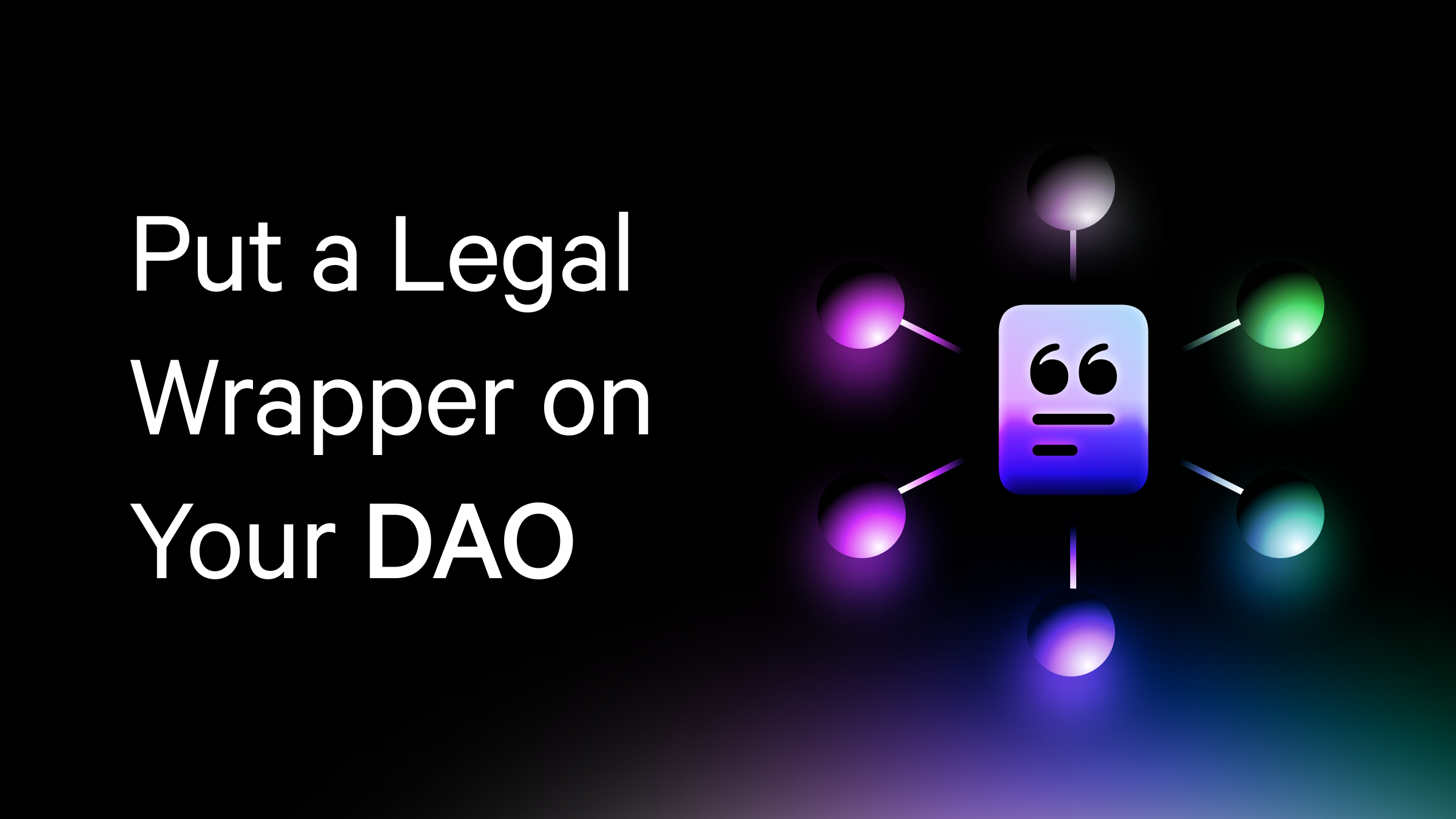Spooky Ooki: Why You Should Put A Legal Wrapper On Your DAO

While the industry earthquake that is the FTX collapse is at the front of everyone’s mind, let’s discuss, if only as distraction, something else that recently happened in the crypto world. On September 22, the CFTC (Commodity Futures Trading Commission - the US derivatives regulator) issued an order imposing a $250,000 fine against the founders of the questionably named Ooki DAO (formerly known as bZeroX DAO) for violations of commodities law in operating a protocol that improperly allowed for certain margin trading.
The order contained three basic lessons. The first lesson is so obvious, it is incredible that it even needed to be “relearned.” The second more subtle lesson (and the one we will discuss in the greatest detail here) is about the nature of DAOs and incorporation, and the third is a quasi arcane rule (to outsiders anyway) about the nature of futures transactions and the way they should be traded in the US.
Lesson 1: AML/KYC is really real
The first–and shockingly obvious–lesson, even more than obvious than the classic “never get involved in a land war in Asia'' or “never go against a Sicilian when death is on the line” (both references to The Princess Bride) is the following: don't actively advertise that a main feature of your product is to break the law. Sure sure, we can discuss privacy concerns of AML/KYC rules governing individuals' transactions and the “ethos” of web3, but there isn't a sovereign state in the world that would allow you to use its currency and financial infrastructure to finance its military enemies, drug dealers, or (worst of all) tax evaders. If this isn't blindingly obvious, our only advice is for the reader to consider a few years of remedial history in Great Power politics.
Lesson 2: Wrap that DAO
The more subtle and interesting point is that the CFTC essentially treated the DAO as an unincorporated partnership. This means that because there is no incorporated entity (please no snide comments, jokes, or complaints about the legal treatment of corporations as people) to stand between the members and any lawsuit, that the DAO’s members themselves are personally liable for any lawsuits, fines, etc. (as in folks can come after a member’s house). Moreover the DAO, as an unincorporated entity, is therefore also treated as a general partnership. In legal speak this translates to each partner/DAO member having “joint and several liability” among the other DAO members.
What this means in plain English is that any member is completely liable for the negligence, at best, and at worst the total idiocy of the other members. The government (in case of violations of law) or other plaintiffs (in civil suits) can go after any member for the misdeeds of any other member. Practically, as our litigation counsel reminds us, this means that the person with the deepest pockets has the Sword of Damocles very loosely hanging above their head. So what makes this first-of-its-kind case interesting is that the members have to pay the CFTC fines themselves, rather than let’s say a corporation (had one existed). Moreover, since each of the members is fully liable for the debts of the DAO, it is going to be interesting to see how the DAO members split the fine among themselves.
Project teams sometimes bristle at the idea of incorporating, or even using some of the new(ish) limited liability company DAO structures that are available in states such as Wyoming or outside the US in the Caymans. Lawyers are boring, forms are tedious, and scanning, filing and reading documents is akin to the fifth circle of Hell itself. Sure, that may all be true, but unless the people you work with are living saints, or you are certain you will never offend anyone or raise any regulatory scrutiny, then maybe a legal wrapper on your DAO is worth the effort.
Lesson 3: Seek counsel for this bit
The final lesson is that if you intend to engage in leveraged margin trades with non-ECPs and therefore can’t use the retail commodity exemption, then those transactions will be deemed to be futures, and you need to trade those products on a DCM via an FCM. If that last sentence seemed a bit dense and confusing, best to hire that boring counsel to work through the tedious rules, documents and filings.
At CoinList, we’re building infrastructure to make it easier than ever to start a crypto company. To begin the conversation and see how CoinList can help take your project to the next level, learn more at http://coinlist.co/products.
Legal notice
The authors are both lawyers with Amalgamated Token Services Inc., dba “CoinList.” The views reflected herein are those of the authors themselves, and nothing herein shall be construed as legal, financial, tax or other advice.
